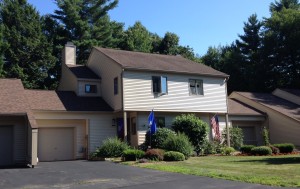 The packages for FHA condominium project approvals include the management agreement between the association and the property manager. Most of them are about 8-12 pages, cut-and-dry, very simple and very easy to read and interpret. But there are some that are just so tedious to read primarily because they are trying to be slick with the legal language.
The packages for FHA condominium project approvals include the management agreement between the association and the property manager. Most of them are about 8-12 pages, cut-and-dry, very simple and very easy to read and interpret. But there are some that are just so tedious to read primarily because they are trying to be slick with the legal language.
Case in point: we reviewed the language of a 33-page management agreement from 2012 and the paragraph about the term of the contract went like this…
“The Board appoints Agent exclusively to manage the Property for a period of ONE (1) year(s), beginning JANUARY 1, 2012, and The Board shall have TWO (2), ONE (1) year options to renew such agreement. Each renewal term shall include a TWO PERCENT (2%) increase in management fees and Cortland provided onsite personnel fees described herein. If Board does not exercise such option within 90-60 days prior to expiration, and does not terminate this agreement according to the terms hereof, this agreement shall automatically renew for additional ONE (1) year terms, with an automatic minimum TWO PERCENT (2%) increase in management fees and Cortland provided onsite personnel fees described herein.” [Emphasis added so that you don’t have to read the whole thing]
Is there an attorney in the house??
I’m sure your first thought was “isn’t Eric’s job fun??!” Actually, I really enjoy my work and to answer your follow-up question: yes, I know I’m not normal.
For anyone who cared to try to digest that paragraph [and those who did are probably as abnormal as I am], might think like me that initially it doesn’t make sense.
The first sentence says that the Board has two options to renew the management agreement in one-year increments.
HOWEVER
If the Board doesn’t “opt in”nor terminate the agreement, it will automatically renew for one-year terms.
The question that HUD will have: “is this agreement still in effect?”
What would your answer be?
My answer is that it is still in effect. This is not because the association is still paying the management company to manage them; we see expired agreements all of the time and the HOA still pays the manager.
My opinion is that it is still in effect because the second piece appears to overwrite the two one-year option stipulation by saying that if the association is silent, then the contract continues in one-year increments until it is terminated.
That’s just my opinion. Let’s see what FHA has to say.
Stay tuned…
Top Photo Credit: (c) Can Stock Photo / elxeneize







 Recently, I received a call from a developer in California who asked me at what point during construction is a condominium eligible for an FHA condominium project approval. She has a condominium approved for development by the city but ground had not been broken as of yet. She said that she had spoken with other project consultants and FHA and had received conflicting information.
Recently, I received a call from a developer in California who asked me at what point during construction is a condominium eligible for an FHA condominium project approval. She has a condominium approved for development by the city but ground had not been broken as of yet. She said that she had spoken with other project consultants and FHA and had received conflicting information. A recent inquiry that I received was regarding the impact of Affordable Rental Units on an FHA Condo Approval. The real estate agent that contacted me was troubled because her buyer’s loan was denied by the lender because there are Affordable Rental Units in the condominium project.
A recent inquiry that I received was regarding the impact of Affordable Rental Units on an FHA Condo Approval. The real estate agent that contacted me was troubled because her buyer’s loan was denied by the lender because there are Affordable Rental Units in the condominium project.